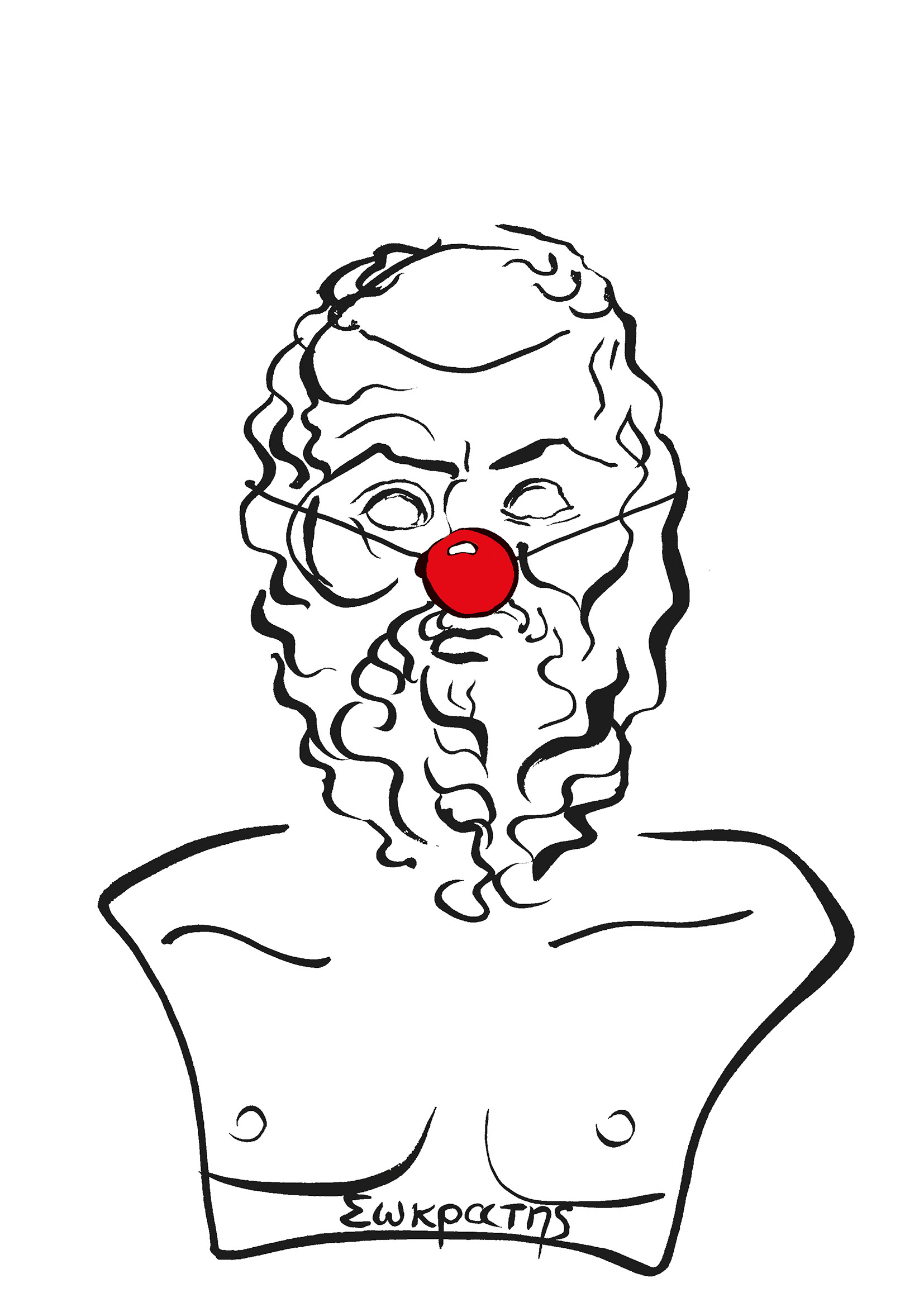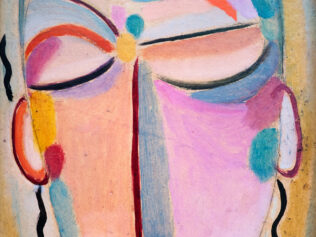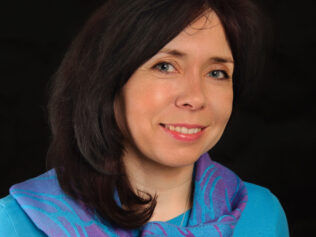
You and I are worried about our fragile nature, and we strive in various ways to achieve the resilience that’s essential for survival. Each and every one of us is united by the need to transform ourselves and to develop immunity to the dangers life inevitably brings.
While various famous philosophers were discussing rather abstract matters in the media, and various famous psychologists were busy talking about the results of the latest neuroscientific research, one rather self-assured fellow came up with a message that was an instant, though unlikely hit.
How might we sum up that message in a single sentence? I think we’d say: ‘You must change your life!’
To this purpose, if you please, he offers you 12 universal rules that will allow you to find peace, contentment and a sense of meaning in life at last. For that is exactly what you’re missing most of all.
This fellow is Jordan Peterson, a Canadian psychologist, who has stormed his way into the literary elite, jealously occupied until now by a handful of the world’s most popular intellectuals. Stormed – let us add – in an entirely spontaneous and grass-roots way, without the support of any media organizations or academic institutions, but merely thanks to a rapidly rising number of spectators and readers (though considerably fewer of them are female), who have been clicking wholesale on all his online appearances and debates. Especially the ones where he uses his undoubted skills and oratory to ‘destroy’ his opponents. To confirm this, all you have to do is enter the by now perhaps anecdotal phrase ‘Jordan Peterson destroys’ into your browser.
True, confronted with an adversary of the calibre of Slavoj Žižek – their debate, recently published online, was an unprecedented commercial and public success – Peterson came across as bland, not very combative and not nearly as well factually prepared. Indeed, his outward realism and apolitical stance are just a disguise for conservatism that occasionally descends into outright misogyny. And true – Peterson is ultimately something like a slightly more than average motivational speaker, who summons frustrated young men to mobilize, which often means to take an even more active part in the ranks of extreme right organizations.
I repeat: all this is true. But there’s one thing he certainly cannot be denied.
He has restored some fundamental topics to public debate.
It is thanks to him that many millions of internet users are now giving some serious thought to matters including responsibility, predestination, love and death. It unquestionably takes special ability or special intuition to touch this sort of archetypal chord.
Perhaps the Canadian psychologist has both these talents, or perhaps his skilfully worded message simply speaks of something that is of direct concern to every thinking, feeling human being – and that’s exactly why it gets such a strong response. It speaks of something that to some people is the basic goal of all human practices – religious, meditative or cultural in any way.
Namely, it speaks of transformation.
The thesis that transformation – both internal and external – is the main horizon of human efforts was recently put forward by the German philosopher Peter Sloterdijk in his excellent book You Must Change Your Life. Earlier on, a similar idea was formulated by Pierre Hadot, the late, great expert on ancient philosophy, who argued in numerous works that the basic aim of philosophy was never pure speculation, but the fundamental transformation of the person doing the philosophizing. In the outlook developed by Hadot, philosophy is a special spiritual exercise, and thus not a purely intellectual activity aimed at achieving the most exhaustive and satisfactory description of the world possible.
So could Jordan Peterson – presumably quite unconsciously – not just have caught the public mood and present demand, but also practised philosophy in its primary meaning: as the art of transformation?
Has he perhaps issued anew the age-old summons that lies at the foundations of human culture: you must change your life, you must live differently from the way you have until now?
***
Even if that’s true, we can still put forward a good many charges – legitimate ones – against the quality of this philosophy. Yet undoubtedly the popularity of this message also proves that in our modern times the hunger for tools that allow us to make life slightly more bearable and slightly more meaningful is vast. Further proof of this is to be found in the enormous market for so-called self-help books, as Peterson’s book is often categorized, though not entirely correctly. Because while the vast majority of self-help books promise satisfying solutions to problems that are basically insoluble, Peterson, for all the charges one may lay at his door, recommends confronting life’s worrying, tragic and difficult aspects. And in this sense he is more suited to the old tradition of philosophy-as-wisdom than the literary category that promises to find a miraculous cure for all the ills generated by the human condition or an unfair social and economic system. Or that first generates problems or things that are missing, and then provides ineffective remedies for them in an obvious way. Because – as often stressed by the Israeli sociologist Eva Illouz, featured in an earlier interview in “Przekrój” – if just one self-help book gave an effective solution to any problem, the whole market for them would collapse immediately. The reason for its survival is the non-stop existence of countless troubles, which a rapidly flowing stream of titles promises to remove.
But before we consider what purpose transformation is actually meant to serve – into whom or what we desire to change, and also why – let us pause to consider a slogan that’s ubiquitous nowadays: ‘Be yourself!’
This phrase offers a superb starting point for considering what’s at the heart of transformation.
***
Admittedly, this phrase is rather hackneyed by now, but it still has life in it. Used with abandon in everyday conversation as well as in the above-mentioned self-help books, and first and foremost in advertisements, whose creators want to persuade us that the only possible way to make this message come true is to buy their product. The singularly effective marketing potential of encouraging us to be ourselves is evidenced not least by the fact that it was used in the past with equal success by two rival brands: Coca-Cola and Pepsi.
But what exactly is ‘Be yourself’ supposed to mean? After all, each of us unquestionably is himself or herself, and not anyone else. So is the call to ‘be yourself’ an example of tautology, and thus a phrase whose individual elements mean the same, a phrase that is basically just information noise, pretending to have deeper meaning?
It’s more complicated than that. The genesis of the modern popularity of this phrase can be directly traced back to the counterculture of the 1960s, when thanks to humanist psychology, the notion of ‘authenticity’ triumphantly stepped onto the world-view stage. The then popular concepts of the ‘false’ and ‘real’ self – which had their sources in psychoanalytical theories – implied that the world of social rules in which we function and which we unthinkingly internalize, actually separates us from our real beliefs, emotions and needs. More than that, it is a sort of impenetrable curtain concealing a great treasure: the self, stuck in a corset of inflexible convention, like a pearl in a mussel shell.
How are we to get to that pearl? That was what techniques involving working with the consciousness or the body were designed for – psychotherapy, meditation, yoga, psychedelic drugs – thanks to which at last, after more or less effort, we could enjoy a sense of fully participating in our deepest and most genuine identity.
Here we come up against a paradox: to ‘be yourself’, first you have to change yourself. You must carry out a basic reorganization. And thus – as the modern, commercial use of this summons would suggest – certainly not remain passive or follow the most immediate impulses or demands (e.g. by consuming the drink for which we’re overcome by a sudden desire).
Yet, in fact, today this thoroughly commercialized slogan, stripped of all meaning, has its roots at the origin of Western culture, because it is one of the standard set of Delphic maxims, in other words the curt instructions carved in Apollo’s temple at Delphi. In a different translation, we’re familiar with it as ‘know thyself’ – a summons particularly dear to the heart of Socrates, or the ancient Greek philosophers in general.
***
How did they understand this sort of ‘knowing’? Did it mean solving an intellectual charade? Identifying all the biological processes that contribute to our individual consciousness, memory and identity? Describing every last detail of every single atom that makes up our person? Not entirely – and not just in view of the fact that when this instruction was first formulated, the empirical sciences did not yet exist, not even in embryonic form.
In one of the essays included in his collection, Philosophy as a Way of Life, the above-mentioned Pierre Hadot, the French philosopher who died in 2010, writes that the essence of this sort of knowing – or more broadly the essence of philosophizing in general – was meant to be something equivalent to ‘a transformation of one’s vision of the world and a metamorphosis of one’s personality’, rather than ‘aiming at the acquisition of a purely abstract knowledge’.
Man starts out from a desperate position. Here he is – cast into a reality that’s subject to constant change, doomed to confront the hostile world of nature, the elements and other animals, prey to diseases, susceptible to injury, and to make matters worse inevitably heading for eternal non-existence, i.e. death. On top of that he’s consumed by his own passions, he’s full of fears, and he clings to various false beliefs that Plato defined as ‘doxa’. Within all these parameters, man leads a painful life, full of insecurities and suffering. Only proper philosophical activity, involving among other things abstract consideration of how things are, can lead him to achieving the sort of perspective that will allow him to gain a suitable foothold for confronting the world and himself.
Sometimes he achieves it – as in Stoicism – by carefully distinguishing between the things on which we have an influence and those on which we have none; sometimes, as in Epicureanism, through contemplative exercises in relaxation and pleasure, or also, to paraphrase Hadot, in forcing oneself to live in the present moment. But the important thing is not the particular method (each school of philosophy has one, and they are often radically different from one another), but the goal: coming to terms with one’s inevitable limitations, achieving deeper insight, and finally, learning how to die.
Socrates, who chose death rather than self-betrayal, is the prototype for the person who conquers his attachment to life, or rather – to cite Hadot again – he preferred the Good, thought and conscience above the life of his body. This choice is the basic philosophical choice: “If it is true that philosophy subjugates the body’s will to live to the higher demands of thought, it can rightly be said that philosophy is the training and apprenticeship for death.” In this way one achieves, if not liberation, then in any case a sort of immunity, which allows one to measure up to the dangerous, hostile and predatory world.
***
For in fact – as Peter Sloterdijk explains in You Must Change Your Life – the whole of human culture is really just one large conglomeration of various systems and institutions that share a single aim: becoming immune. The German philosopher likes to use the term Homo immunologicus (instead of Homo sapiens), meaning ‘man gaining immunity’, as he keeps practising, as he never stops frantically striving to put up fortifications against the impermanent nature of his own body and of the world.
We have been contributing to this collective effort to build an immunological barrier between ourselves and the world since the dawn of time. In Sloterdijk’s view, culture – in the proper sense of the word – starts at the very moment when the processes of gaining immunity go beyond the purely biological sphere. In other words, when the sort of defensive sub-systems appear that function within areas that exceed the sphere of the body, as by strength of nature it protects itself from the destructive effect of outside forces, the elements or lethal micro-organisms. These are the social structure, and religions and world outlooks.
“In the case of humans,” writes Sloterdijk, “we have reason to expect not only a single immune system – the biological one, which is the first in evolutionary terms, but the last in terms of its discovery history. The human sphere contains no fewer than three immune systems, which function layered on top of one another in close collaborative interaction and functional augmentation. In the course of man’s mental and socio-cultural evolution, two complementary systems have developed for the pre-emptive processing of injuries: firstly, the socio-immunological methods, especially legal and solidaristic ones, but also the military ones by which people resolve their confrontations with distant and foreign aggressors and insulting or harmful neighbours; and secondly the symbolic or psycho-immunological practices on which humans have always relied to cope – with varying success – with their vulnerability through fate, including mortality.”
The appeal to change your life, and rich social and cultural practices – starting with education and ending with subtle mystical systems – are thus in fact methods for acquiring immunity, in a similar sense to that described by Pierre Hadot. The beginnings of human culture coincide with the building of the first organized structures to regulate social life, and the first mythological and magical systems – structures that establish the need for regular exercise and regular repetition, the aim of which was gradually to shape better and better forms of defence against a dangerous reality governed by random processes.
Meanwhile, almost from the very start, these forms of exercise relied on a relationship with transcendence, in other words with something that goes beyond the individual, material perspective. Just as in the case of Socrates, who valued the Good above his own biological existence.
***
As we might expect of a conservative – though one of a specific kind, who definitely doesn’t have much in common with the sort of conservatism favoured by the Polish right – Sloterdijk expresses his views on our modern times in a decidedly sceptical way. He sees contemporary culture as a remote shadow of the integrated systems of old that led to effective internal and external transformation, and thus to actual acquiring the desired immunity. Yet he still defines it as being generally oriented around the appeal for change – though the word ‘appeal’ is usually completely removed from its primary meaning.
From this perspective he examines today’s obsession with fitness, for instance. In a brilliant argument he draws a close analogy between ancient and mediaeval ascetic practices and the modern cult of sports – the latter is essentially a metamorphosis of the former, or rather a version of the first two distorted in a particular way: namely, deprived of its open reference to anything that goes beyond the corporeal and the material. Thus, today’s cult of physical fitness, as practised in numerous gyms, is now limited to nothing but meaningless repetition, stripped of transcendence, and yet it is still the same technique, ruthlessly subordinated to responding to the general appeal for the greatest possible transformation of one’s current way of life into a better, stronger one that is resistant to the afflictions of human fate.
***
So in an era marked by crisis, when the economy is becoming inefficient, science is providing a gloomy, inhuman picture of the world, religion is losing its capacity to give it meaning, and philosophy has long ago ceased to be interested in the fundamental problems of existence, no wonder various radical messages promising instant change are gaining increasing popularity. Because they land on the most receptive soil imaginable – our innate sense of fragility, the eternal need for transformation that is encoded in us by biological and cultural evolution, the need to acquire elemental immunity. This need expresses itself in the feeling that our lives in their current, unprocessed, untransformed shape, not yet subjected to some sort of beneficial correction, cannot continue any longer; the feeling that radical intervention is needed, a form or a practice that will give our lives direction or create the required conditions for transformation.
Let us note that Sloterdijk’s diagnosis is essentially a positive appeal for universalism. He sees humanity as a collection of individuals fearing for their own fragile nature and striving in various ways to achieve the fitness necessary for survival. Our need for transformation and to become immune to the dangers that life brings is a fundamental given that unites all of us without exception. Or rather it is our delicate nature, our fragility in the face of the destructive forces inherent in existence.
So what, when in the modern world – for now at least – the messages that gain the greatest popularity are the ones that rely on values contrary to universalism? Messages that proclaim strong, national, or rather tribal identities, that call for exercises designed to produce not so much immunity as a predisposition to be actively violent, that are built on terror and the dehumanization of one’s opponents, and that drive basic existential fear to dangerous heights.
In an ideological landscape of this kind, Peterson’s essentially well-intentioned recommendations – to clean your room before you start to change the world, or to feed the cat you find in the street – do not sound quite as ominous as the modern left would like to paint them. Alternatively, it could endeavour to elaborate a different story that at the very least would just as intensively work on our imagination and motivate us to change. After all, transformation is necessary, because just like everyone who came before us and everyone who’s going to come after us, we too must change our lives right away.
Sources of quotations:
Pierre Hadot, Philosophy as a Way of Life: Spiritual Exercises from Socrates to Foucault, trans. Arnold Davidson, Blackwell Publishing, 1995.
Peter Sloterdijk, You Must Change Your Life, trans. Wieland Hoban, Polity Press, 2013.
Translated from the Polish by Antonia Lloyd-Jones









